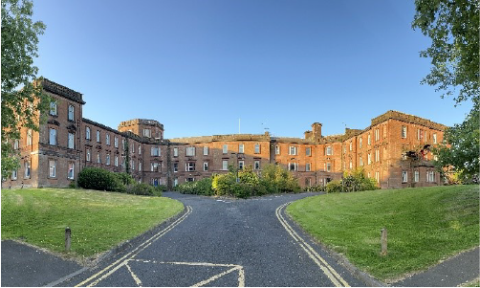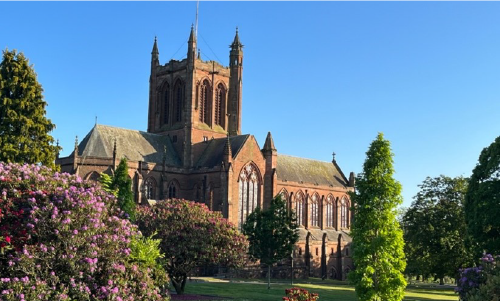The Psychiatry and the Arts in Nineteenth-Century Britain Network

By Rosemary Golding
Have you ever wondered about the day-to-day lives of patients in nineteenth-century asylums? Many of us will have a sense of the asylum as a miserable, even dangerous place, riddled with disease, where vulnerable patients were kept against their will in large numbers, barely different from the (equally notorious) workhouse. Yet the recent work of a number of researchers has identified the widespread use of the arts as a form of recreation, occupation, and even therapy, within nineteenth-century asylum practice.
The Psychiatry and the Arts in Nineteenth-Century Britain Network, funded by the Arts and Humanities Research Council, seeks to bring together these historians, working in a range of academic disciplines (including history of art, publishing/ book history, and music history) to share ideas and findings in order to build up a fuller picture of the role of the arts in the nineteenth-century asylum and beyond. We investigate not only practices, but the discourses and debates around where and how the arts should be used, in different forms of institutions which catered for patients of different ages, classes, and mental conditions.
In addition, the Network also seeks to open conversations and identify synergies between scholars of history and practitioners in the creative arts, healthcare and heritage sectors. Through our events and online presence we hope to connect with practitioners in the creative arts, healthcare and heritage sectors in order to find new ways forward for our historical agendas, as well as opportunities for impact and public engagement. At the same time, engaging closely with practitioners and service users has the potential to shape our historical approaches, questions and interpretations.
Since early 2023 we’ve held two symposia. The first event took place at The Crichton campus in Dumfries, in June 2023. In addition to six fascinating papers, many of which discussed examples from the Crichton’s own history, we enjoyed a concert based on the 2022 project Up the Middle Road, which used oral history from the asylum’s twentieth-century history to inspire new pieces of music, and a campus tour with Dr Valentina Bold, Heritage Policy & Projects Officer at The Crichton Trust. The symposium was attended by historians, including those local to the Crichton, as well as representatives from Scottish Arts and Health organisations, and psychiatrists.

The second symposium took place online in October 2023, and featured four further papers exploring the nature of the relationship between the arts and psychiatry. On this occasion we heard from scholars in literature, the history of periodicals, history, and historical geography, covering a tremendous range of ideas and approaches. Among the attendants were artists and coordinators from groups working in arts, heritage and mental health, who contributed a really important service-user perspective to our discussion.
During 2023-4 the Network will run a further symposium (21 March), develop collaborative projects between historians and practitioners, and conclude with a two-day conference (20-21 June) at The Open University campus in Milton Keynes. We would be delighted to hear from any scholars working in the broad areas of health and arts, and its heritage, who would like to make connections with historians, or share their own projects. We hope to build on these links for future funding proposals and public-facing work.
Further information about the Network can be found via the Psychiatry and the Arts in Nineteenth-Century Britain (PAN) website and anyone interested in joining our events is welcome to email [email protected]
